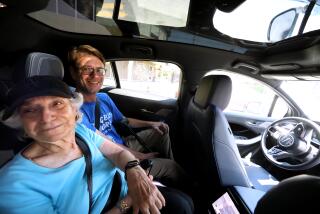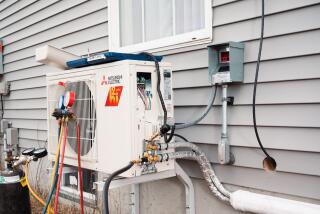Living (Nearly) Auto-Free
“I think the bicycle has done more to emancipate women than anything else in the world. I stand and rejoice every time I see a woman ride on a wheel.”
--Susan B. Anthony
About seven years ago I gradually changed my trip to work from a two-hour car commute to a refreshing 10-minute bicycle ride.
After a decade of driving the freeway, my soul had grown weary of watching the sun rise and set from behind the steering wheel. Working closer to home meant a cut in my income, giving up my new Mazda minivan and downsizing to an older Toyota.
Around this same time, I began reading a mountain of books on sustainable cities and saving the Earth; pleas for sanity like “If You Love This Planet” by Helen Caldicott, “How Much Is Enough” by Alan Durning, “The Geography of Nowhere” by James Howard Kunstler and “Asphalt Nation: How the Automobile Took Over America and How We Can Take It Back” by Jane Holtz Kay.
I discovered cutting-edge publications like the Auto-Free Times and spent my spare time carpooling to events by international experts on traffic reduction, traffic calming and the ultimate heresy: car-free cities.
Amazingly, these publications and speakers all said the same thing: The cumulative effect of 500 million cars worldwide is responsible for more social and environmental damage than any other artifact on our planet.
I learned that half of all daily trips in the United States lie within a three-mile radius and a quarter of all trips are a mile or less.
Besides educating myself about the hidden cost of the private car, what really made me question the driving life was the observation that in spite of increased speed, people feel like they have less time then ever before. Time-use studies find little difference in average commuting times in the car-centered U.S. culture where we guzzle 40% of the world’s gasoline, and in countries that are virtually carless.
Lest I be misunderstood, let me clarify that I see nothing wrong with cars per se. I like their comfort and convenience as much as the next person does. Used wisely, cars have their place in a balanced transportation system. It’s just that there’s too darned many of them and our small planet cannot possibly cough up enough resources to provide every human being with their own air-conditioned / CD / phone / fax / microwave-equipped “carcoon.”
I’ve always been a part-time cyclist, but what I learned about cars and the environment inspired me to take bicycling to a whole new level. There is ample documentation that bicycling conserves energy, increases property values, increases business and makes our streets and highways more efficient for those who must commute by car. Every time I commute by bicycle, that frees one car parking spot for someone else.
I began driving less and less. The day came when I began to resent paying insurance on a vehicle I only pulled out of the driveway two or three times a month. I sold my Toyota, and for the past five years I’ve been conducting an experiment to see if it’s possible to function auto-free.
I made a vow that, except for emergencies, I would make all trips within a three-mile radius on foot or bicycle. I purchased a collapsible shopping cart and a bicycle trailer big enough to hold four bags of groceries and a huge bag of alfalfa pellets for my potbellied pig. I’ve learned to ride wearing almost any outfit--a business suit or even a long skirt, rain or shine. I have an electric bike to help me when my travels take me uphill. Occasionally I ride the bus and use the airport shuttle. And, in a culture where many families have two or three vehicles, it’s not hard to catch a ride or borrow or rent a car when a genuine need arises.
Maybe you’d be willing to try a similar experiment. Even leaving your car at home one day a week can make a significant difference in reducing traffic congestion and air pollution. Consider making a commitment to leave your car at home one day a week or at least to avoid driving alone in your car.
If you love this planet, find a way to drive your car less.
SUZA FRANCINA
Mayor
Ojai






